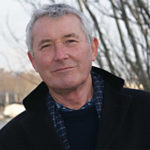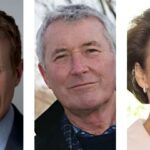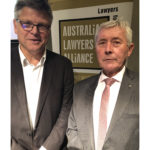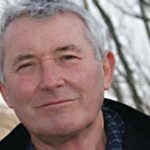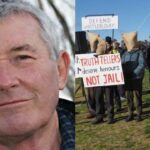Labor Has Ended the Political Prosecution of Bernard Collaery
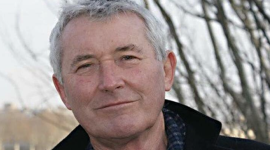
Federal attorney general Mark Dreyfus announced in Sydney on Thursday that he’s ordered the prosecution of Bernard Collaery to be dropped.
The ACT barrister was being pursued over charges relating to his having exposed the Howard government’s illegal bugging of the Timor-Leste cabinet offices in 2004.
The case against Collaery, a former ACT attorney general, was launched in mid-2018 after then federal attorney general Christian Porter gave the Commonwealth Director of Public Prosecutions the greenlight to proceed.
However, this was five years after Collaery and alleged “co-conspirator” Witness K had been raided by federal agents in relation to the East Timor incident, only to have then federal AG George Brandis determine not to proceed with their prosecutions.
So, when Porter ordered charges be laid against the pair, the decision had an air of the political about it, rather than any public interest value in pursuing the matter.
On Albanese coming to power, Dreyfus indicated that one of his first acts as chief lawmaker would be to review the case, which had dragged on for years as the barrister persistently challenged the secrecy measures the former Liberal Nationals government attempted to impose on proceedings.
The crimes of government
“In taking this decision I have had careful regard to our national security, our national interest and the proper administration of justice,” Dreyfus said. “It is my view that the prosecution of Mr Collaery should end.” And he added he’d neither be confirming nor denying the security matter involved.
In response long-time Collaery supporter, independent MP Andrew Wilkie welcomed the decision, and underscored that “the Australian government is the real villain in this case, having made the appalling decision to spy on East Timor, which is one of the poorest countries in southeast Asia.”
Witness K is the former ASIS agent who led the Timor-Leste bugging operation that aimed to give our nation the upper hand in oil and gas treaty negotiations, which would ultimately be to the benefit of both domestic and international energy corporations.
The Inspector General of Intelligence and Security advised K to consult with Collaery in 2008, after the ASIS agent approached him about an internal employment dispute, as the ACT barrister was officially approved by the international spying agency.
After Collaery determined the bugging operation was illegal, Witness K was set in 2013 to testify on behalf of Timor-Leste at the Permanent Court of Arbitration in the Hague, which was when ASIO and the AFP raided both men’s Canberra premises.
End the political prosecutions
Since the laying of charges in 2018, there had been a determined campaign to see both Witness K and Collaery’s prosecutions dropped. However, K eventually pleaded guilty to the offences he was charged with, receiving a 3 month suspended sentence last year.
But the Alliance Against the Political Prosecutions further asserts that the case against former ADF lawyer David McBride, for bringing attention to war crimes, should be dumped, along with that of former ATO officer Richard Boyle, who blew the whistle on dodgy tax practices.
Another key concern is the continued persecution of WikiLeaks founder Julian Assange on the part of both the UK and US governments. Experts state that the Australian journalist’s health is failing due to the harsh conditions he’s long been subjected to in London’s Belmarsh prison.
Prime minister Anthony Albanese has stated that behind-the-scenes negotiations are going on in relation to Assange, whose being punished for having published the details of war crimes leaked to him by former US army officer Chelsea Manning, a regular journalistic practice.
So, with these negotiations remaining hidden, Julian’s supporters are left hoping that the discussions are ongoing and effective.


